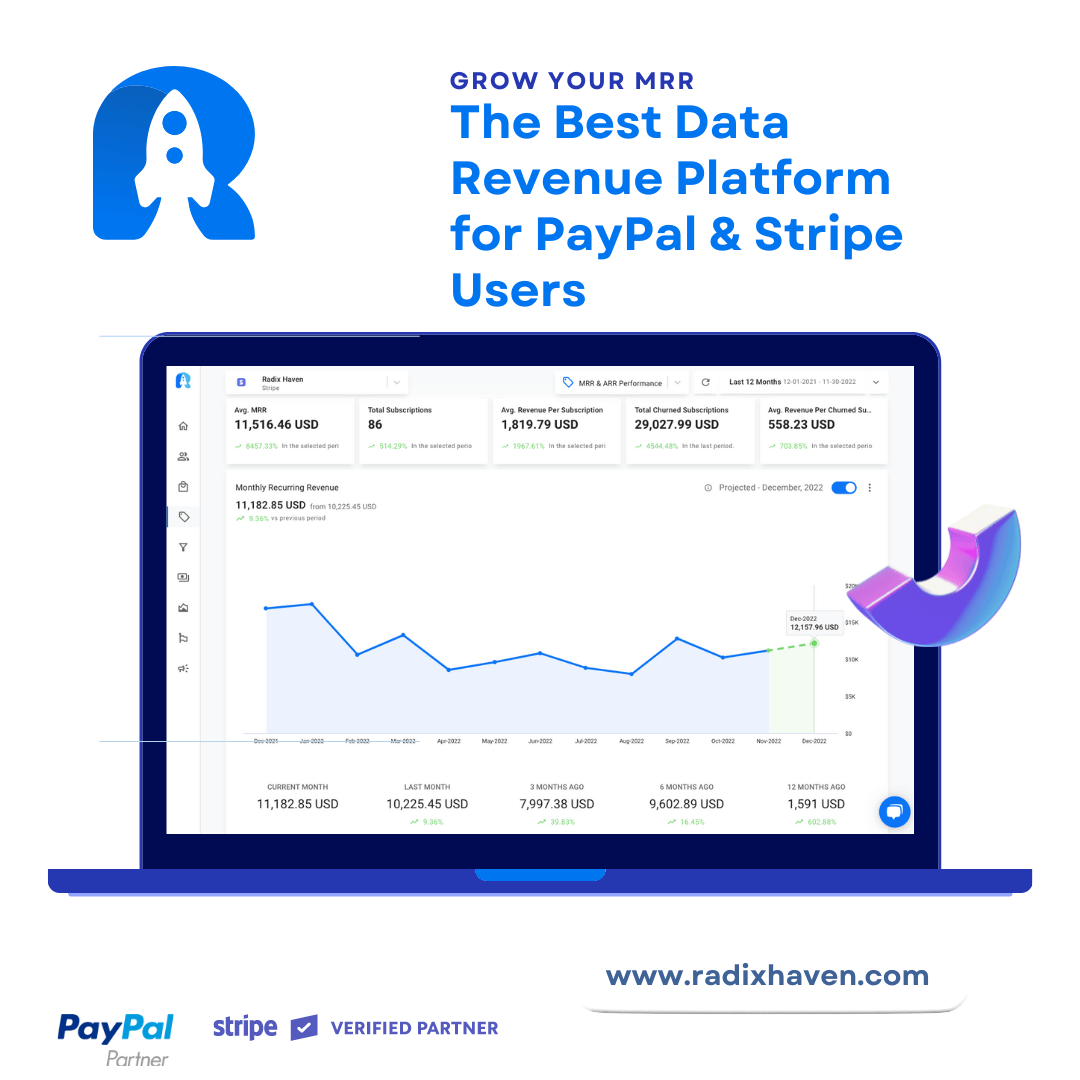Business analytics data is critical to understanding a company’s performance, and PayPal is no exception. With millions of transactions taking place every day, it’s important to have a way to analyze and understand the data generated by these transactions. One tool that can be used for this purpose is Radix, a platform that provides real-time analytics and insights for businesses. In this article, we will discuss how to evaluate business analytics data and seasonal performance in PayPal using Radix.
Understanding Business Analytics Data in PayPal
Before we dive into how to use Radix, it’s important to understand what business analytics data is and how you can use it if you are a PayPal Merchante. Business analytics data refers to the information generated by transactions, such as sales data, customer demographics, and transaction volume. You can use this data to identify trends, make informed decisions, and optimize performance.
In PayPal, business analytics data can be accessed through the PayPal Business account. This account provides access to a variety of reports, including sales reports, transaction reports, and customer reports. You can customizee these reports to provide insights on specific metrics such as revenue, average order value, and customer lifetime value.
Using Radix to Evaluate Business Analytics Data
Radix is a powerful platform that provides real-time analytics and insights for businesses. It can be used to analyze business analytics data from a variety of sources, including PayPal.
Here are some steps to help you get started with using Radix to evaluate your PayPal business analytics data:
1) Connect your PayPal account to Radix
To use Radix with your PayPal data, you’ll need to connect your PayPal account to Radix. This can be done by logging into Radix and selecting the PayPal integration option. You’ll then be prompted to enter your PayPal login credentials, and Radix will automatically pull in your PayPal data.
2) Create custom reports
Once you connect your PayPal data to Radix, you can start creating custom reports to analyze your business analytics data. Radix provides a variety of report templates, or you can create your own custom reports. Some metrics you may want to include in your reports include:
- Revenue
- Transaction volume
- Customer demographics
- Average order value
- Customer lifetime value
3) Analyze trends
With your custom reports created, you can start analyzing trends in your business analytics data. Radix provides real-time data and insights, allowing you to identify trends as they happen. For example, you may notice a spike in sales during a particular time of year or a decrease in customer engagement on certain products.
4) Optimize performance
Using the insights gained from your Radix reports, you can start optimizing your performance in PayPal. For example, if you notice a decrease in customer engagement on certain products, you may want to adjust your marketing strategy or consider offering promotions to boost sales. Alternatively, if you notice a spike in sales during a particular time of year, you may want to adjust your inventory or staffing levels to meet increased demand.
Understanding Seasonal Performance in PayPal
Seasonal performance is an important consideration for any business, including those operating on PayPal. Understanding seasonal trends can help you make informed decisions about inventory, staffing, and marketing. Here are some tips for evaluating seasonal performance in PayPal using Radix:
1) Analyze historical data
One of the best ways to understand seasonal trends in PayPal is to analyze historical data. Radix allows you to analyze data from past years to identify trends and patterns. For example, you may notice that sales typically increase during the holiday season or that there is a lull in sales during the summer months.
2) Identify seasonal products
Another way to understand seasonal trends is to identify seasonal products. These are products that are in high demand during certain times of the year, and may experience decreased sales during other times. By identifying these products, you can adjust your inventory and marketing strategies accordingly. For example, if you sell swimsuits, you may want to increase your inventory during the summer months and decrease it during the winter.
3) Adjust marketing strategies
Understanding seasonal trends can also help you adjust your marketing strategies. For example, if you know that sales typically increase during the holiday season, you may want to launch a holiday marketing campaign to drive sales. Alternatively, if you notice a decrease in sales during a particular season, you may want to adjust your marketing messaging or offer promotions to boost sales.
4) Plan for staffing needs
Seasonal trends can also impact staffing needs. If you know that sales typically increase during a particular season, you may need to hire additional staff to handle the increased demand. Alternatively, if you know that sales typically decrease during a particular season, you may need to adjust staffing levels accordingly to avoid unnecessary expenses.
Using Radix to Boost Overall PayPal Analytics
In conclusion, business analytics data and seasonal performance are critical considerations for any business operating on PayPal. By using Radix to analyze your PayPal data, you can gain real-time insights that can help you make informed decisions and optimize your performance. Whether you’re looking to increase sales, improve customer engagement, or adjust staffing levels, Radix can help you achieve your goals.
We urge all businesses operating on PayPal to consider using Radix to track and boost overall PayPal analytics. With its powerful analytics and real-time insights, Radix can help you make data-driven decisions and achieve your business objectives.
Don’t miss out on this valuable tool – start using Radix today!
To learn more about using business performance analytics to meet your goals, visit here.






